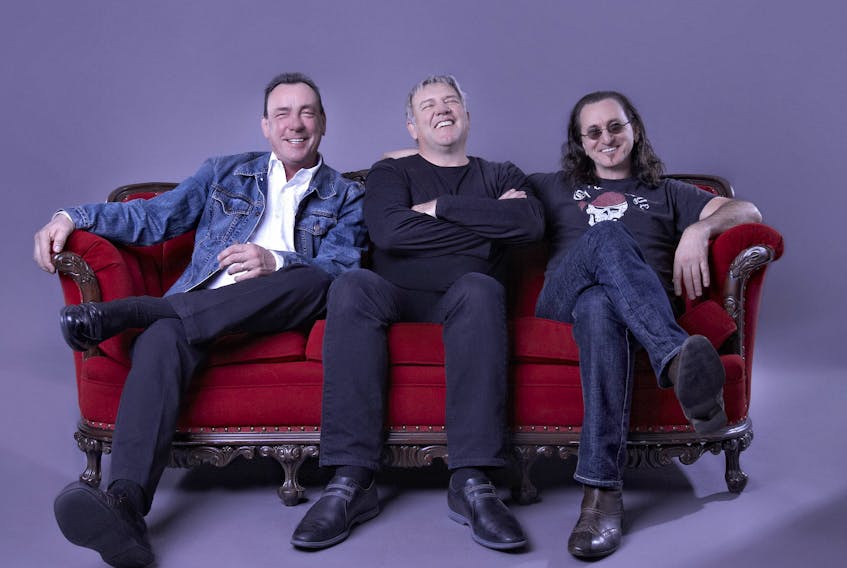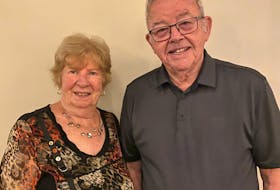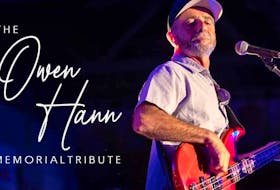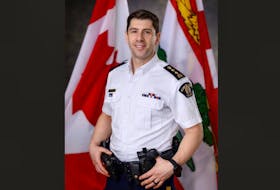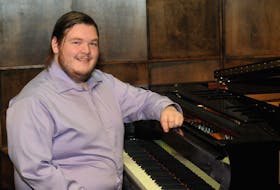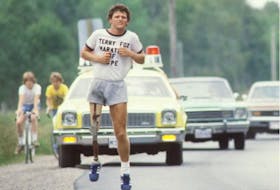Rush’s Neil Peart WAS the different drummer. He didn’t need to march to the beat of one.
So it’s no wonder that musicians and music fans across Canada are mourning the loss of such a singular talent and celebrating his unassailable body of work from over 40 years of sympatico performance with his equally revered bandmates, guitarist Alex Lifeson and bassist Geddy Lee.
Peart, who passed away last week at age 67 after a battle with brain cancer, was revered for his consummate skill, multi-layered lyricism and exploratory spirit. The fact that an introvert from a small Ontario town like Port Dalhousie could go on to become a driving force behind the most enduring rock trio of all time wasn’t lost on players in far-flung parts of the country, and the East Coast was no exception.
Currently the rhythmic engine for Nova Scotian globetrotting band Wintersleep, Loel Campbell first heard Rush while growing up in Stellarton and playing drums in bands like Contrived, which recently played a packed reunion show at the Seahorse Tavern.
“I just thought ‘This drummer’s insane!’ when hearing his arrangements and how much thought he put into them,” says Campbell, who was first exposed to songs like Tom Sawyer and Closer to the Heart via classic rock radio.
“It was kind of inspiring, but also unattainable, because he’s such a wizard master of the drums, in the most grandiose, no-holds-barred, play-everything kind of way.”

Campbell remarks that years later, he’d feel like a surrogate Peart when Geddy Lee provided a bass part for the song Territory on Wintersleep’s 2016 album The Great Detachment. They didn’t get to play together in person, but four years later it still stands out as a career highlight.
“I used way less fills and so on, but we sent the track to Geddy, and I was just thinking about how he was listening to my drumming when he usually deals with the master,” Campbell recalls.
“We didn’t get involved in the usual studio-to-studio, player-to-player conversation and microdecisions. It was done through email, but it was pretty cool nonetheless. It’s certainly the closest I’ll ever get to being in Rush.”
Halifax drummer Tom Bona currently calls Toronto home, where the Maple Blues Award-nominated player is currently part of a power trio with blues guitar-slinger Sue Foley. He remembers hearing the 1980 hit The Spirit of Radio on the car radio and immediately buying the album Permanent Waves, and air-drumming to Tom Sawyer from 1981’s Moving Pictures.
“I’d listen to Neil’s parts and think, ‘Yeah, I can do that!’ I’d hear what he was doing and understand what he was doing, and then I’d sit at my five-piece drumkit and just bomb,” says Bona, who would later get to set up his drums in Peart’s place at Chalet Studio, where Rush recorded four albums between 1989 and 1996.
“My brain doesn’t think that fast, my hands don’t play that fast, and I couldn’t put it together physically, even though mentally I totally understood what he was doing. So in a way, Neil Peart was one of my greatest drumming influences simply for the fact that I realized I can’t play like him, and that I didn’t have to play like him. My limitations became my strengths, once I figured out that unless I’m going to play Rush songs, I don’t have to learn all his licks.”
“I’d listen to Neil’s parts and think, ‘Yeah, I can do that!’ I’d hear what he was doing and understand what he was doing, and then I’d sit at my five-piece drumkit and just bomb.”
- Halifax drummer Tom Bona
Peart was also a double inspiration to Maritimes native Jon Epworth, as a drummer who also wrote songs, an unusual combination outside of maybe Dave Grohl and Phil Collins, or Nova Scotia’s Geoff Arsenault. Currently based in Victoria, B.C., where he teaches percussion as well as making his own music, the former Dean Malenkos drummer and frontman for the Improvements had Peart in mind when he wrote The Odd-Time Pocket-Guide, a portable primer for those who want to play outside of the 4/4 box.
“As a kid listening to Rush, my dream would have been to have had one of those big wanky kits with 19 toms and 40 cymbals and stuff, but Neil was so centred on groove so much of the time, you could still try and emulate his groove without having all those extra, non-essential items." Epworth says.
“People who aren’t drummers think of Tom Sawyer, and they think of that section with the big drum fill, but in most drummers’ minds, it’s the basic groove of the song. He was one of the first drummers to take something in 7/4 or 7/8 and make it sound funky.”
Epworth has also taken Peart’s ambitious lyrical scope to heart on his own projects like Failure Epics and The Miracle Sweat, preferring to tackle societal issues and the complexities of human interaction over more mundane matters of pop romance.
“Neil talked about very specific things,” says Epworth. “Take a later song like Nobody’s Hero on Counterparts; it wasn’t a big hit for Rush, it was acoustic, and right off the bat it talks about LGBTQ acceptance and stuff like that.
“Rock bands weren’t doing things like that at all. The very first line is ‘I knew he was different in his sexuality,’ and right there that’s Neil talking to specific things without generalizing. I think they probably took a lot of flack from their fans for that ... but that’s Rush saying what they wanted to say, knowing they would get some backlash for it.”
RELATED:
JOHN IVISON: I ended up in Canada because of Rush

